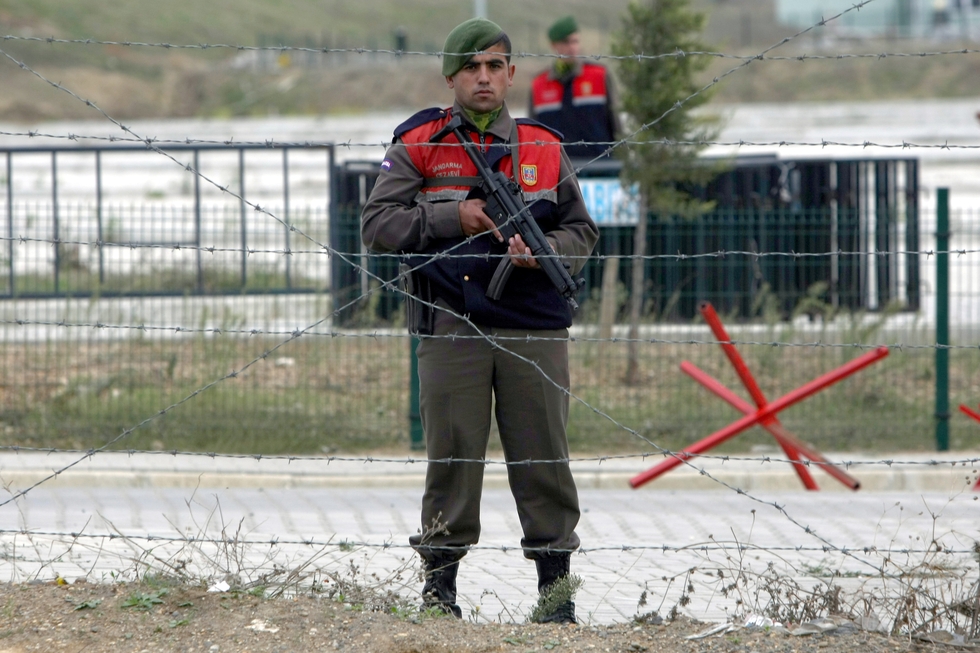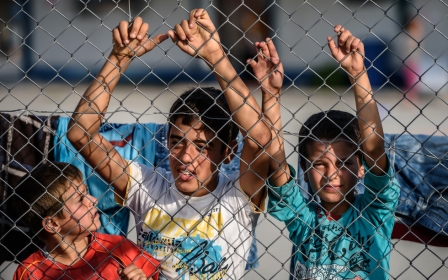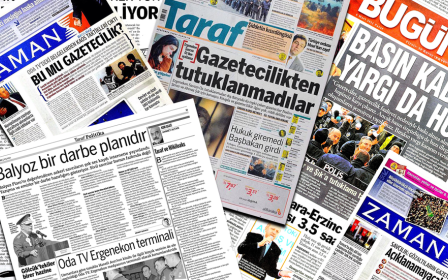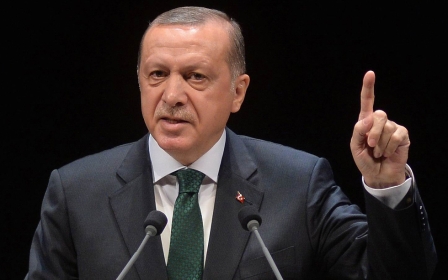HRW accuses Turkey of abandoning 'safeguards' against torture

ISTANBUL, Turkey – The Turkish government has used the additional powers granted to it by state of emergency laws to remove crucial safeguards that can prevent detainees from facing ill-treatment and torture, Human Rights Watch warned in a report.
The report, released on Monday, looks into how the state of emergency has impacted on conditions of those held in police detention and the rights of detainees in Turkey.
The HRW report included witness statements which, at least, hinted at the threat of torture being employed.
"Because of the state of emergency, nobody will care if I kill you. I will just say I shot you while you tried to run away," one police officer said to a detainee, according to family members of another detainee who overheard him.
"You won’t make it out of here alive. We now have 30 days," said another police officer, referring to the extended period of police detention, to a detainee while threatening to rape him with a baton, as told to the detainee’s lawyer
A three-month state of emergency was declared by the Turkish government on 20 July after a failed coup attempt five days earlier. That was extended by another three months earlier this month. Turkish President Recep Tayyip Erdogan has even hinted at prolonging the state of emergency for more than a year if necessary.
The state of emergency grants expanded powers to the government in many areas, including the right to hold suspects in custody for up to 30 days without judicial review.
Tens of thousands of people have been detained and arrested for belonging to US-based Islamic cleric Fethullah Gulen’s movement since 15 July. Authorities blame Gulen and his followers for orchestrating the failed coup attempt.
The Turkish government responded to the report with a statement categorically denying allegations of torture.
The report interviewed 40 lawyers, human rights activists, former detainees, medical personnel and forensic specialists and detailed 13 cases of alleged abuse including torture.
The HRW report cited two changes in particular under the state of emergency as seriously weakening the rights of detainees and leaving them more exposed to potential ill-treatment.
The first was the government’s decision to derogate from the protections of the European Convention on Human Rights (ECHR), and also from 13 articles of the International Covenant on Civil and Political Rights (ICCPR), including those relating to humane treatment of detainees and the right to a remedy.
The second area of concern mentioned in the report is a provision where government officials are absolved of responsibility for duties carried out as part of state of emergency decrees.
Turkish Justice Minister Bekir Bozdag in a statement released on the ministry’s website categorically rejected allegations of torture and ill-treatment in prisons and said: “If anyone says otherwise and cannot prove they are engaged in slander," it read.
“Those accusing Turkey of torture and ill-treatment should also announce where, against whom, who, when and how these incidents occurred.”
Turkish officials have repeatedly said they are the targets of unfair criticism when it comes to announcing a state of emergency. They often cite France, where a similar state of emergency is in place and which has also derogated from the protections of the ECHR, as an example of double standards employed by the West.
They have also criticised their Western allies for focusing on how Turkey should conduct its post-coup crackdown instead of showing solidarity with the country for having survived the coup attempt.
The Turkish and French foreign ministers even had a public argument during a press conference in Ankara on Monday over the legal basis of the states of emergency in place in both countries.
New MEE newsletter: Jerusalem Dispatch
Sign up to get the latest insights and analysis on Israel-Palestine, alongside Turkey Unpacked and other MEE newsletters
Middle East Eye delivers independent and unrivalled coverage and analysis of the Middle East, North Africa and beyond. To learn more about republishing this content and the associated fees, please fill out this form. More about MEE can be found here.




